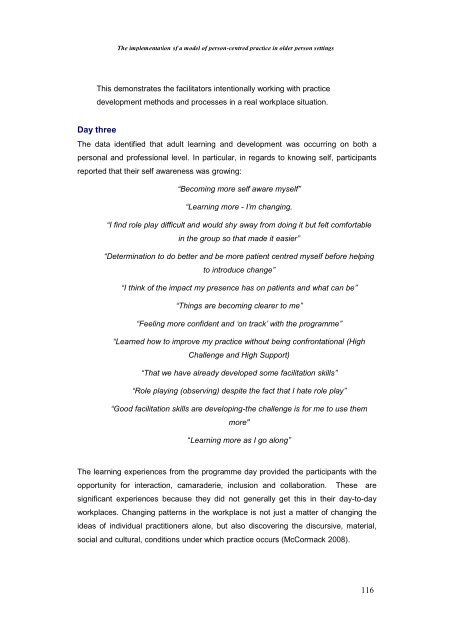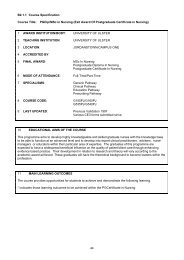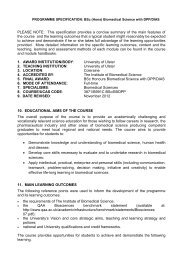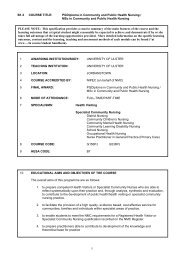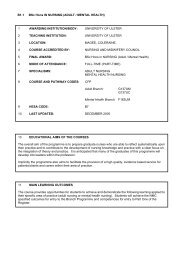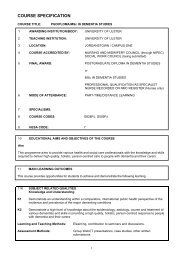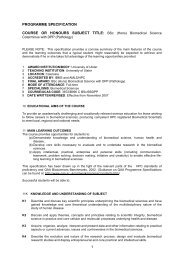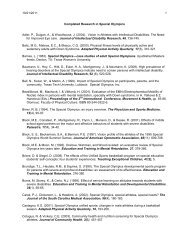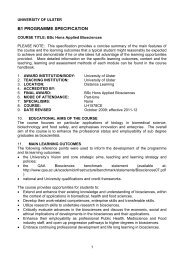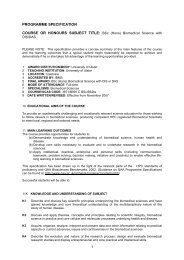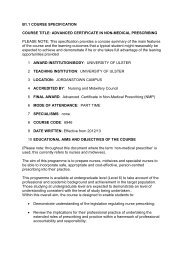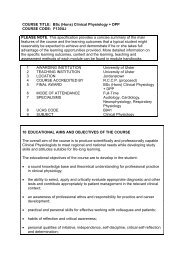The Implementation of a Model of Person-Centred Practice In Older ...
The Implementation of a Model of Person-Centred Practice In Older ...
The Implementation of a Model of Person-Centred Practice In Older ...
Create successful ePaper yourself
Turn your PDF publications into a flip-book with our unique Google optimized e-Paper software.
<strong>The</strong> implementation <strong>of</strong> a model <strong>of</strong> person-centred practice in older person settings<br />
This demonstrates the facilitators intentionally working with practice<br />
development methods and processes in a real workplace situation.<br />
Day three<br />
<strong>The</strong> data identified that adult learning and development was occurring on both a<br />
personal and pr<strong>of</strong>essional level. <strong>In</strong> particular, in regards to knowing self, participants<br />
reported that their self awareness was growing:<br />
“Becoming more self aware myself”<br />
“Learning more - I’m changing.<br />
“I find role play difficult and would shy away from doing it but felt comfortable<br />
in the group so that made it easier”<br />
“Determination to do better and be more patient centred myself before helping<br />
to introduce change”<br />
“I think <strong>of</strong> the impact my presence has on patients and what can be”<br />
“Things are becoming clearer to me”<br />
“Feeling more confident and ‘on track’ with the programme”<br />
“Learned how to improve my practice without being confrontational (High<br />
Challenge and High Support)<br />
“That we have already developed some facilitation skills”<br />
“Role playing (observing) despite the fact that I hate role play”<br />
“Good facilitation skills are developing-the challenge is for me to use them<br />
more"<br />
“Learning more as I go along”<br />
<strong>The</strong> learning experiences from the programme day provided the participants with the<br />
opportunity for interaction, camaraderie, inclusion and collaboration. <strong>The</strong>se are<br />
significant experiences because they did not generally get this in their day-to-day<br />
workplaces. Changing patterns in the workplace is not just a matter <strong>of</strong> changing the<br />
ideas <strong>of</strong> individual practitioners alone, but also discovering the discursive, material,<br />
social and cultural, conditions under which practice occurs (McCormack 2008).<br />
116


